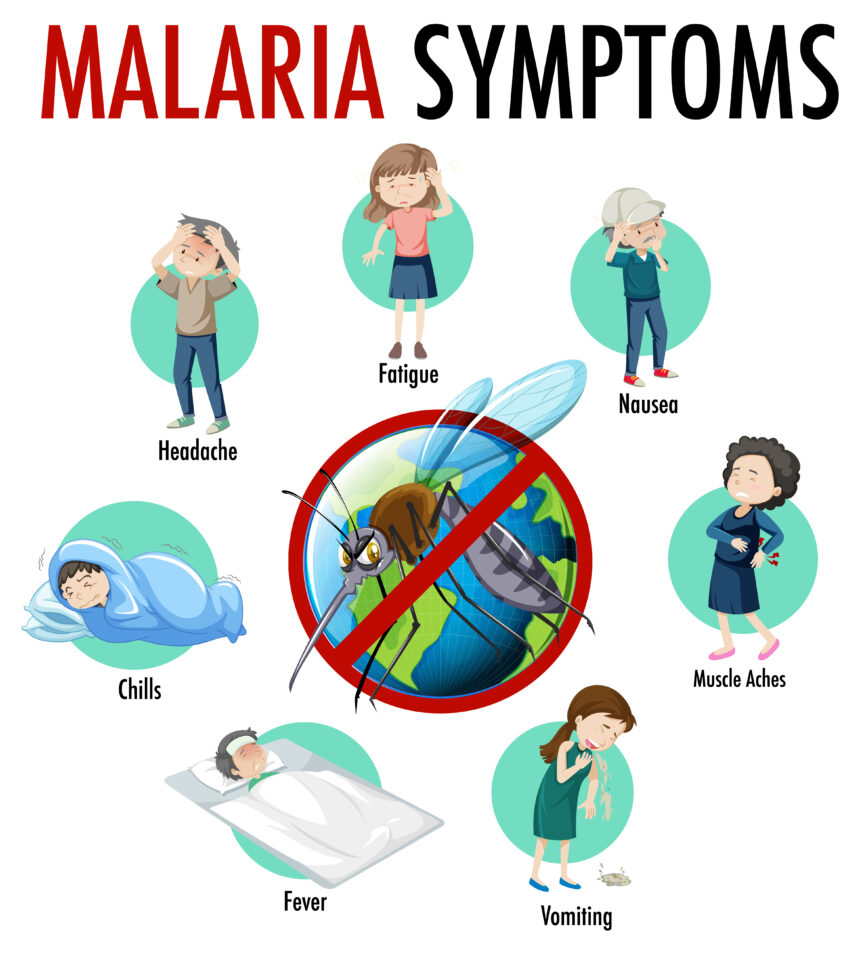Malaria is a potentially life-threatening disease caused by the Plasmodium parasite, transmitted to humans through the bite of infected female Anopheles mosquitoes. While South Africa has made significant progress in reducing the incidence of malaria in recent years, it remains a concern in certain regions, particularly Mpumalanga, Limpopo, and KwaZulu-Natal provinces. Understanding the symptoms of malaria is crucial for early detection and timely treatment. By recognizing these symptoms, individuals can seek medical attention promptly and prevent the progression of the disease.
The symptoms of malaria can vary depending on the type of Plasmodium parasite and the individual’s immune response. The most common symptoms typically appear 10 days to 4 weeks after being bitten by an infected mosquito. However, in some cases, symptoms may not manifest for several months or even years.
The early symptoms of malaria often resemble those of the flu, which can make it challenging to differentiate between the two. Common symptoms include:
- Fever: Fever is one of the hallmark symptoms of malaria. It can range from mild to high and may be accompanied by chills and sweating. The fever often occurs in cycles, with periods of intense fever followed by a feeling of relief.
- Headache: Many individuals with malaria experience severe headaches, which can be persistent and throbbing.
- Fatigue and Weakness: Malaria can cause extreme fatigue and weakness, leading to a decreased ability to perform daily activities.
- Muscle and Joint Pain: Aches and pains in the muscles and joints are common symptoms of malaria and can range from mild to severe.
- Nausea and Vomiting: Malaria can cause gastrointestinal symptoms such as nausea, vomiting, and diarrhea.
- Flu-like Symptoms: Malaria can sometimes present with symptoms similar to the flu, including a sore throat, cough, and congestion.
- Anemia: Malaria can lead to a decrease in red blood cells, resulting in anemia. Symptoms of anemia may include pale skin, shortness of breath, and fatigue.
In severe cases of malaria, additional symptoms may develop, indicating a more critical condition that requires immediate medical attention. These symptoms can include:
- Severe Headache: Intense, persistent headaches that do not respond to over-the-counter pain relievers.
- Seizures: Malaria can cause seizures, particularly in young children.
- Confusion and Altered Mental State: Severe malaria can affect the brain, leading to confusion, disorientation, and neurological symptoms.
- Organ Dysfunction: In severe cases, malaria can cause organ dysfunction, particularly affecting the liver and kidneys. This may manifest as jaundice (yellowing of the skin and eyes) or dark-colored urine.
- Difficulty Breathing: Malaria can lead to fluid accumulation in the lungs, causing difficulty in breathing.
It is important to note that not everyone infected with malaria will experience the same symptoms. Some individuals may exhibit only mild symptoms or be asymptomatic carriers of the parasite. This is why it is crucial to seek medical attention if you have traveled to a malaria-endemic area and experience any symptoms, even if they are mild.
If you suspect you may have malaria, it is essential to consult a healthcare professional immediately. Prompt diagnosis and treatment are critical in preventing severe complications and reducing the risk of transmission to others. A healthcare provider can conduct a blood test to confirm the presence of the malaria parasite and prescribe appropriate antimalarial medications based on the specific type of parasite and the severity of the infection.
In conclusion, recognizing the symptoms of malaria in South Africa is essential for early detection and timely treatment. While malaria remains a concern in certain regions, understanding the symptoms allows individuals to seek medical attention promptly, preventing the progression of the disease and reducing its impact on public health. If you experience any flu-like symptoms, particularly after visiting a malaria-endemic area, consult a healthcare professional for proper evaluation and treatment.










